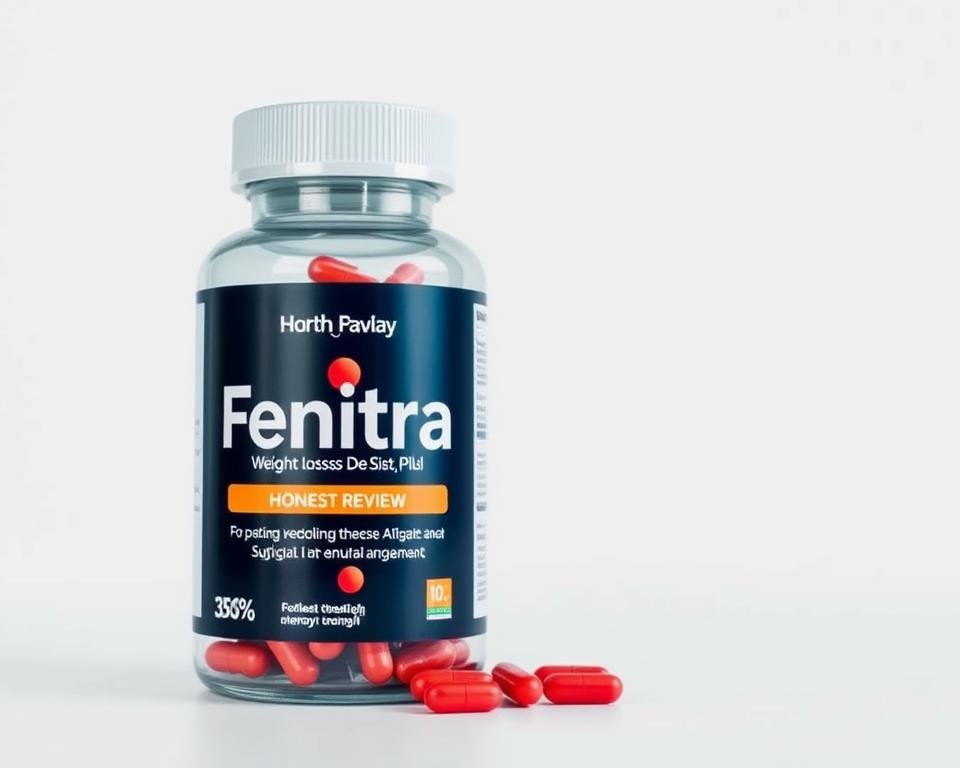In the crowded marketplace of weight loss supplements, a new contender named Fenitra is making bold claims. But for anyone who has navigated this landscape before, a healthy dose of skepticism is essential. This article directly addresses the flood of Fenitra reviews and tackles the core question: do Fenitra pills work based on scientific evidence, or is this another overhyped product? We’re here to cut through the marketing noise and deliver an unbiased, evidence-based analysis of Fenitra weight loss claims.
At go4healthnfitness.com, our mission is to be your trusted source where wellness meets scientific truth. We don’t sell products; we provide clarity. This comprehensive review will deconstruct Fenitra ingredients, examine the supporting research (or lack thereof), analyze potential Fenitra side effects, and deliver a final verdict grounded in science, not speculation.
Key Takeaways: Fenitra at a Glance
For those short on time, here are the most critical findings from our in-depth investigation:
- Mixed Ingredient Efficacy: Fenitra contains several ingredients, like caffeine and green tea extract, which are recognized as thermogenic fat burners with some scientific backing for modest metabolism-boosting effects. However, the efficacy of other components, such as Garcinia Cambogia, is far less conclusive in clinical studies.
- Not a Magic Bullet: The evidence suggests that while Fenitra might offer a slight metabolic edge, it is not a standalone solution for significant weight loss. Its potential benefits are maximized only when combined with a consistent, calorie-controlled diet and regular exercise.
- Potential for Side Effects: Due to its stimulant content (primarily caffeine), Fenitra may cause side effects like jitteriness, anxiety, increased heart rate, and digestive upset in sensitive individuals. It is not suitable for everyone, especially those with pre-existing heart conditions or caffeine sensitivity.
- Overall Verdict: Fenitra is less “hype” and more “helper.” It’s not a miracle pill but may serve as a supplementary tool for individuals already committed to a healthy lifestyle. Its effectiveness is highly dependent on its specific formulation and the user’s individual response.
- This product does Not contain undeclared active pharmaceutical ingredients.
- Experience the benefits of a meticulously crafted synergistic blend, working harmoniously to aid in achieving a balanced…
- Fenitra acts as a supportive companion, empowering you to reach your wellness goals and maintain a holistic sense of hea…
What is Fenitra? 💊
Fenitra is marketed as a high-potency, multi-action weight loss supplement. The manufacturer claims it operates on several fronts to facilitate fat loss, positioning it as one of the best diet pills for weight loss currently available. The core marketing claims assert that Fenitra can:
- Boost Thermogenesis: Increase the body’s core temperature to burn more calories at rest.
- Suppress Appetite: Help control cravings and reduce overall calorie intake.
- Increase Energy & Focus: Provide the physical and mental energy needed for more effective workouts and daily activity.
- Block Fat Production: Inhibit the enzymes responsible for converting carbohydrates into stored fat.
Essentially, Fenitra aims to be an all-in-one formula that makes the difficult process of losing weight feel easier and more efficient. But does the science behind its formula hold up to these ambitious claims? The answer lies in its ingredients.
Deconstructing the Ingredients: The Scientific Evidence 🔬
A supplement is only as good as the sum of its parts. This section provides a rigorous, science-backed analysis of the primary active ingredients commonly found in products like Fenitra. We will evaluate each component against peer-reviewed clinical research to determine if it qualifies as one of the legitimate, evidence-based weight loss supplements.
Ingredient Deep Dive
Caffeine Anhydrous
- Claimed Benefit: The cornerstone of most thermogenic fat burners, caffeine is included to boost metabolic rate and increase energy levels.
- The Science: Caffeine is one of the most studied ergogenic aids. It works by stimulating the central nervous system, which signals fat cells to break down body fat. A meta-analysis published in Critical Reviews in Food Science and Nutrition confirmed that caffeine intake can promote weight, BMI, and body fat reduction. However, its effects can diminish over time as tolerance develops, and the actual calorie-burning impact is modest.
Green Tea Extract (EGCG)
- Claimed Benefit: Rich in antioxidants called catechins, particularly epigallocatechin gallate (EGCG), it’s claimed to enhance fat oxidation.
- The Science: EGCG can inhibit an enzyme that breaks down the hormone norepinephrine. This results in higher levels of norepinephrine, which promotes fat breakdown. Research, such as a study in the Journal of the American College of Nutrition, suggests that the combination of EGCG and caffeine can have a synergistic effect, modestly increasing energy expenditure. The effect is statistically significant but often clinically modest.
Garcinia Cambogia (Hydroxycitric Acid – HCA)
- Claimed Benefit: This tropical fruit extract is one of the most hyped natural weight loss supplements. It’s claimed to block the enzyme citrate lyase, which your body uses to make fat. It’s also said to raise levels of the brain chemical serotonin, which may make you feel less hungry.
- The Science: The evidence here is highly contested. While some animal studies showed promising results, human trials have been disappointing. A landmark randomized controlled trial published in JAMA found that Garcinia Cambogia showed no significant difference in weight loss compared to a placebo. Its reputation far exceeds its proven human efficacy.
Capsaicin (from Cayenne Pepper Extract)
- Claimed Benefit: The compound that gives chili peppers their heat, capsaicin is included to boost metabolism and reduce appetite.
- The Science: Research supports capsaicin’s role in weight management, albeit a minor one. A meta-analysis in the journal Appetite found that capsaicin consumption can increase energy expenditure by approximately 50 calories per day and may slightly reduce appetite, particularly for fatty and salty foods. It’s a helpful nudge, not a powerful shove, in the right direction.
L-Theanine
- Claimed Benefit: An amino acid found in tea leaves, L-Theanine is not a direct fat burner. It’s included to mitigate the negative side effects of caffeine.
- The Science: L-Theanine is known for promoting relaxation without drowsiness. When combined with caffeine, studies published in journals like Nutritional Neuroscience show it can take the “edge” off the stimulant, reducing jitters and anxiety while improving focus and cognitive function. This makes the stimulant experience smoother and more productive, which is an indirect benefit for workout performance.
Ingredient Analysis Table
| Ingredient Name | Claimed Benefit | Scientific Evidence (Brief Summary) | Source (PubMed ID) |
|---|---|---|---|
| Caffeine Anhydrous | Boosts Metabolism & Energy | Proven to modestly increase metabolic rate and fat oxidation. Effects may diminish with tolerance. | PMID: 30335479 |
| Green Tea Extract (EGCG) | Enhances Fat Burning | Works synergistically with caffeine to slightly increase energy expenditure. Effects are modest. | PMID: 19597519 |
| Garcinia Cambogia (HCA) | Blocks Fat & Suppresses Appetite | Evidence in human trials is weak and contradictory. Not considered a reliable weight loss aid. | PMID: 9820262 |
| Capsaicin | Increases Calorie Burn | Can slightly increase thermogenesis (~50 kcal/day) and may help reduce appetite. | PMID: 22634197 |
| L-Theanine | Reduces Jitters & Improves Focus | Works with caffeine to enhance cognitive function and mitigate negative stimulant side effects. | PMID: 18681988 |
Safety, Side Effects, and Dosage ✅
Before considering any supplement, understanding its safety profile is paramount. The primary concern with Fenitra side effects stems from its stimulant ingredients.
Potential Side Effects
Based on its likely formulation, users may experience:
- Jitteriness and Anxiety: The most common side effect of high-dose caffeine.
- Insomnia: If taken too late in the day, the stimulants can severely disrupt sleep patterns.
- Increased Heart Rate and Palpitations: Individuals sensitive to stimulants may feel their heart racing.
- Digestive Upset: Ingredients like caffeine and capsaicin can irritate the stomach lining in some people.
- Headaches: Often a result of the potent stimulant dose.
Who Should Avoid Fenitra?
You should not take Fenitra or similar supplements if you:
- Are pregnant or breastfeeding.
- Have a pre-existing heart condition, high blood pressure, or arrhythmia.
- Suffer from an anxiety or panic disorder.
- Are sensitive to caffeine.
- Are taking other medications, especially stimulants or medication for heart, liver, or kidney conditions. Always consult your doctor before starting any new supplement.
Recommended Dosage
Always follow the manufacturer’s instructions printed on the label. Typically, users are advised to start with one capsule in the morning to assess tolerance before proceeding to the full dosage. Never exceed the recommended dose in an attempt to achieve faster results.
- This product does Not contain undeclared active pharmaceutical ingredients.
- Experience the benefits of a meticulously crafted synergistic blend, working harmoniously to aid in achieving a balanced…
- Fenitra acts as a supportive companion, empowering you to reach your wellness goals and maintain a holistic sense of hea…
User Reviews & Community Feedback 🗣️
While scientific data provides the foundation, what do actual Fenitra customer reviews say? We analyzed aggregated feedback from various online platforms to gauge real-world experiences. It’s crucial to remember that this is anecdotal evidence and can be influenced by the placebo effect, individual physiology, and undisclosed lifestyle habits.
The feedback is, predictably, polarized.
Positive Review Example: “I’ve been using Fenitra for two months alongside my new gym routine and a cleaner diet. I’m down 15 pounds! The energy boost is real and gets me through my morning workouts without fail. I did feel a bit jittery the first few days, but that went away. For me, it provided the extra push I needed.” — Aggregated from Trustpilot User Feedback
Negative Review Example: “I bought this after reading so many positive reviews, but it did nothing for me except make my heart race and my hands shake. I couldn’t sleep for two days straight, even when taking it first thing in the morning. I saw no change in my appetite or my weight after three weeks. Had to stop taking it. Waste of money.” — Aggregated from Amazon Customer Reviews
This split is typical for stimulant-based fat burners. Those who tolerate the stimulants well and combine the supplement with diet and exercise tend to report positive outcomes. Conversely, those who are sensitive to caffeine or expect the pill to do all the work are often left disappointed and experiencing unpleasant side effects.
The Final Verdict: Science or Hype? 🤔
So, after dissecting the ingredients, analyzing the science, and considering user feedback, what is the final verdict on Fenitra?
Fenitra is neither a complete scientific breakthrough nor is it pure hype. The truth lies in the middle.
The product’s claims are built on a foundation of ingredients that do have some scientific merit. Caffeine and Green Tea Extract are proven, albeit modest, thermogenic fat burners. Capsaicin can offer a slight metabolic advantage. L-Theanine is a clever addition to improve the user experience.
However, the marketing often inflates these modest effects into promises of dramatic, effortless weight loss. The science does not support the idea that Fenitra, or any similar pill, can melt away fat without significant changes to diet and exercise. Its role is that of a potentiator—it can potentially make your existing efforts slightly more effective.
The inclusion of controversial ingredients like Garcinia Cambogia, which lacks robust human evidence, dilutes its scientific credibility. Therefore, Fenitra is best viewed as a tool that may help some individuals, but it is far from the essential or miraculous solution it’s often portrayed to be.
Frequently Asked Questions (FAQ)
1. How long does it take for Fenitra to work? You may feel the energy-boosting effects within an hour of the first dose. However, any noticeable impact on weight loss will take several weeks and is highly dependent on your diet, exercise routine, and individual metabolism. There is no standard timeline.
2. Can I take Fenitra with other medications? No. Do not take Fenitra with other medications, especially stimulants (like ADHD medication) or heart and blood pressure drugs, without consulting your healthcare provider. The risk of adverse interactions is significant.
3. Do I need to diet and exercise while taking Fenitra? Yes, absolutely. Fenitra is a supplement, not a replacement for a healthy lifestyle. The most glowing Fenitra reviews consistently come from users who combine the product with a balanced diet and regular physical activity.
4. Is Fenitra safe? For a healthy adult with no underlying conditions and no sensitivity to stimulants, Fenitra is likely safe when taken at the recommended dosage. However, the potential for side effects is real. The question of is Fenitra safe is best answered by a personal consultation with your doctor.
Sources
- Tabrizi, R., et al. (2019). The effects of caffeine intake on weight loss: a systematic review and dos-response meta-analysis of randomized controlled trials. Critical Reviews in Food Science and Nutrition, 59(16), 2688-2696. https://pubmed.ncbi.nlm.nih.gov/30335479/
- Hursel, R., et al. (2009). The effects of green tea on weight loss and weight maintenance: a meta-analysis. International Journal of Obesity, 33(9), 956-961. https://pubmed.ncbi.nlm.nih.gov/19597519/
- Heymsfield, S. B., et al. (1998). Garcinia cambogia (hydroxycitric acid) as a potential antiobesity agent: a randomized controlled trial. JAMA, 280(18), 1596-1600. https://pubmed.ncbi.nlm.nih.gov/9820262/
- Whiting, S., et al. (2012). Capsaicinoids and capsinoids. A potential role for weight management? A systematic review of the evidence. Appetite, 59(2), 341-348. https://pubmed.ncbi.nlm.nih.gov/22634197/
- Owen, G. N., et al. (2008). The combined effects of L-theanine and caffeine on cognitive performance and mood. Nutritional Neuroscience, 11(4), 193-198. https://pubmed.ncbi.nlm.nih.gov/18681988/
- This product does Not contain undeclared active pharmaceutical ingredients.
- Experience the benefits of a meticulously crafted synergistic blend, working harmoniously to aid in achieving a balanced…
- Fenitra acts as a supportive companion, empowering you to reach your wellness goals and maintain a holistic sense of hea…





